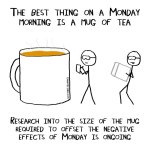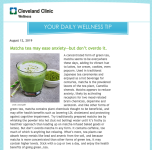Holy Basil is pulling away as my go to for stress relief. Takes the edge off without putting me to sleep. After drinking a ton of sedative tea I'd break them down to something like this:
Holy Basil - De-stresses without putting me to sleep or tiring me out mentally
Mint - Acts as a body relaxant but makes mental focus more difficult
Chamomile - Makes me sleepy but doesn't knock me right out
Lavender - Strong enough and it's like a sleeping pill
Valerian Root - Strong sedative but tastes terrible
A few weeks ago I bought the same amount of the first four, and noticed that I go through Peppermint and Holy Basil much faster than Chamomile or Lavender, which speaks to the fact that I don't often need sedatives to get to sleep these days. But Peppermint and Tulsi act as good relaxants in lieu of beer or liquor.
Holy Basil - De-stresses without putting me to sleep or tiring me out mentally
Mint - Acts as a body relaxant but makes mental focus more difficult
Chamomile - Makes me sleepy but doesn't knock me right out
Lavender - Strong enough and it's like a sleeping pill
Valerian Root - Strong sedative but tastes terrible
A few weeks ago I bought the same amount of the first four, and noticed that I go through Peppermint and Holy Basil much faster than Chamomile or Lavender, which speaks to the fact that I don't often need sedatives to get to sleep these days. But Peppermint and Tulsi act as good relaxants in lieu of beer or liquor.



